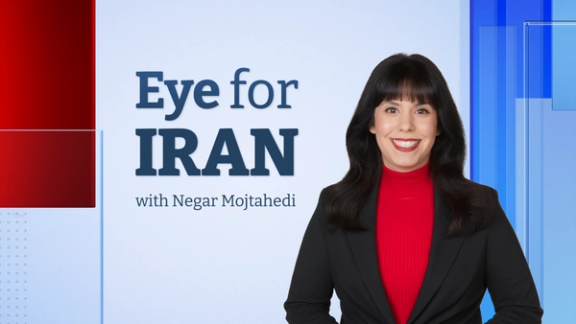PODCAST - Eye for Iran: Hostage Diplomacy and Hamid Nouri

Convicted war criminal Hamid Nouri is back on Iranian soil after being released by Sweden in a prisoner swap deal with Tehran on June 16.

Convicted war criminal Hamid Nouri is back on Iranian soil after being released by Sweden in a prisoner swap deal with Tehran on June 16.
In this week’s episode of ‘Eye for Iran,' we discuss how Iran’s hostage diplomacy is outplaying the West.
Host Negar Mojtahedi spoke with Iranian-Canadian human rights lawyer Kaveh Shahrooz whose uncle, Mehrdad Ashtari, was killed during the 1988 massacre of thousands of political prisoners that involved Nouri.
Alongside Sharooz is Mariam Claren, a German-Iranian fighting for her mother, Nahid Taghavi, a German national who has been unlawfully detained in Iran’s notorious Evin prison since 2020.
Shahrooz was a young child in Iran when his mother’s brother was imprisoned, tortured and hanged as a political dissident - to this day he said he doesn’t even know where he’s buried.
Nouri’s conviction of crimes against humanity, under universal jurisdiction, for his role in the 1988 massacre that saw more than 5 thousand political prisoners killed, was a modicum of justice for Shahrooz and other families.
He said “the fact that somebody was finally meant to pay for this crime was meaningful,” but now after Nouri’s release, he feels “deeply hurt” and “abandoned."
Claren, whose mother - a retired architect, remains in Evin prison in the same ward as Noble Peace Prize winner Narges Mohammadi, said the West should not give into hostage diplomacy. She said her own mother, wouldn’t want to be exchanged in such a way.
She questions why Ahmadreza Jalali, a Swedish-Iranian doctor on death row in Iran, was excluded from the prisoner swap.
“Maybe he just wasn’t Swedish enough,” said Claren.
Claren said “we should address the elephant in the room. Why did Johan Floderus, who is part of an EU delegation of the Middle East, who knows about the hostage diplomacy in the Islamic Republic of Iran, travel as a tourist to Iran?”
For more, watch or listen to Episode 3 of 'Eye for Iran.'